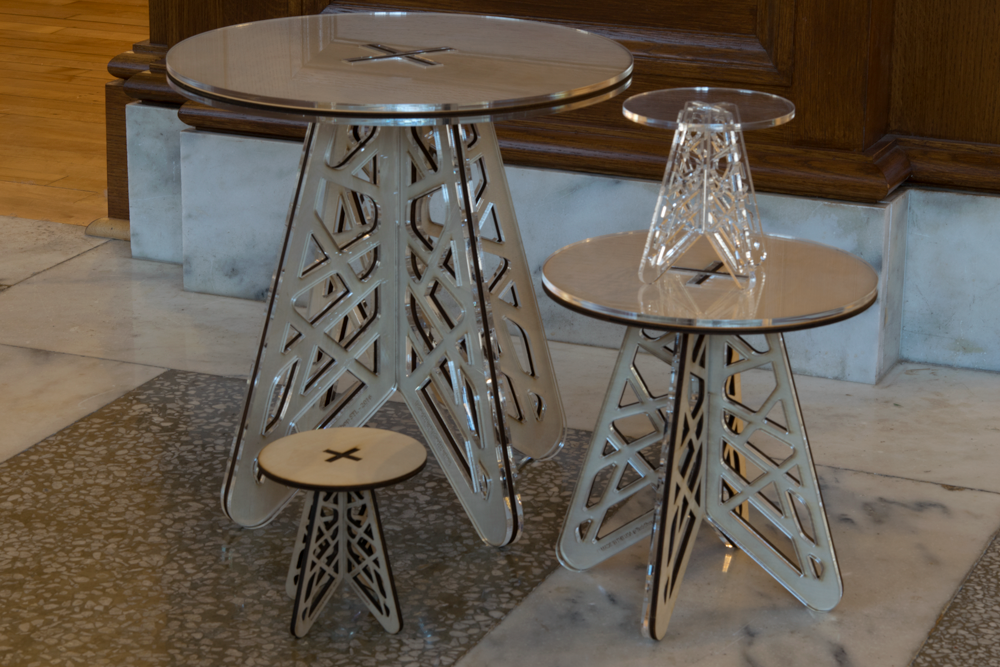By David Nicklaus
St. Louis Post-Dispatch
WWR Article Summary (tl;dr) “TechShop” is a membership workshop in St. Louis. Entrepreneurs can use their design skills — and TechShop’s equipment — to do small-scale manufacturing.
St. Louis Post-Dispatch
Bobbie Farrell always thought of herself as a creative person, but she never expected to become an expert on a laser cutter and use it to make money.
Craig Caesar was already an entrepreneur with his own 3-D printing equipment, but didn’t envision himself as a product designer and artisan.
The August opening of TechShop, a membership workshop in the Central West End, has propelled both Farrell and Caesar into the vanguard of the so-called maker movement in St. Louis. Both are using their technology and design skills — and TechShop’s equipment — to do small-scale manufacturing, and both are encouraging others to do the same.
Farrell, a freelance writer from Alton, toured TechShop before it opened and was wowed by the more than $1 million worth of equipment and tools. The $150 monthly membership seemed steep but her boyfriend, Adam Hosmer of Staunton, talked her into it.
“We thought, we’re creative people, surely we will find ways to make use of this equipment,” Farrell recalled. She quickly got trained on TechShop’s laser cutter and used it to make wooden keychains, which have sold well at craft shows.
From there, she branched out into snowflake ornaments and wooden door hangers with interchangeable seasonal designs. She and Hosmer have set up a website, Innotations.com, and are considering renting a mall kiosk.
Caesar came to TechShop with a plan for how he was going to use the machines. He needed customized parts for an electronics kit that his company, MakerMakers of St. Charles, sells as part of an educational program for children, and making them on a laser cutter would be faster and cheaper than ordering them from a contract manufacturer.
The first class on the machine “lit me up” with ideas, Caesar recalls. He made an acrylic-and-wood table for a display at the Murmuration festival in September, and “people were more interested in the table than my kits.”
So he pivoted and began taking orders for tables. To use some of the waste wood from making them, he designed an interlocking lizard puzzle, and sold $200 worth of those at the first show he attended.
Since TechShop opened, Caesar also has designed product prototypes for two other companies. He was already in business for himself, but now he’s juggling multiple products and has a diverse revenue stream.
“I aspire to be a serial entrepreneur, using my creative skills more than my business and organizational skills,” Caesar said. “Now I’ve gotten a taste of what that can be like, and it’s pretty great.”
Caesar is looking forward to using more of TechShop’s equipment. He’s already screen-printed a T-shirt and sewn bags for his puzzles. The metal shop and paint booth also beckon.
Those might sound like difficult skills, but TechShop offers beginner-level classes in all of them. It also has a community of members — about 500 so far — willing to share their expertise.
TechShop opened its first maker space in California a decade ago. St. Louis is the ninth U.S. location, and it’s also in Paris, Tokyo and Abu Dhabi.
Mike Hill, TechShop’s general manager, says about half the members are using the shop for a business, while the rest use it for hobbies and do-it-yourself projects.
TechShop also has more than 30 institutional members, which pay for their employees to use the equipment. On a recent weekday, a Caleres employee was making a digital display for the company’s shoe stores.
The business people, Hill said, aren’t much different from the hobbyists. “Every person who makes something wants to share it,” he said. “Whether they’re sharing it for free, at cost or for profit, it’s our innate desire to share what we have created.”














































































































































































































































































































































































